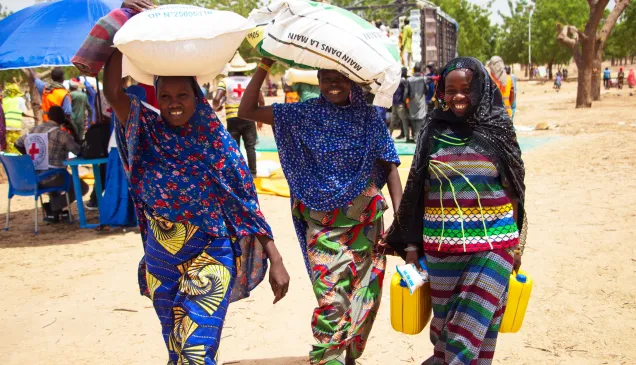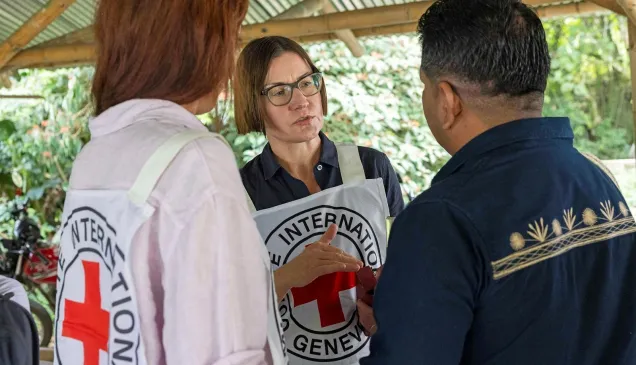Remarks by Kathleen Lawand, head of ICRC arms unit, delivered on the subject of nuclear weapons and the significance of the 2017 Prohibition of Nuclear Weapons Treaty:
1. We know from the ICRC's first-hand experience in Hiroshima in 1945 that the use of even a relatively small nuclear weapon would cause death, injury and destruction on a massive scale, that there would be no effective means of providing aid to the dying and wounded, and that those exposed to radiation would suffer life-long and fatal consequences to their health.
2. Given the catastrophic humanitarian consequences of any use of nuclear weapons and the global repercussions of even a limited nuclear exchange, all States have an interest in the prohibition and elimination of nuclear weapons. The ICRC and the Red Cross and Red Crescent Movement have long-called for the prohibition and elimination of nuclear weapons, and we call on all States to join the Treaty on the Prohibition of Nuclear Weapons, as an essential step towards a world free of nuclear weapons.
3. Debates over high or low yield nuclear weapons overlook the catastrophic humanitarian consequences of any use of these terrifying weapons. We must recall that the devastation of Hiroshima and Nagasaki resulted from weapons that are 'small' compared to most of the bombs in today's nuclear arsenals. Such a discussion also ignores the risk of nuclear escalation and more and higher-yield nuclear weapons being used in response to a low-yield attack.
4. If States are unable to join the Treaty on the Prohibition of Nuclear Weapons at this time, the ICRC calls on them to urgently fulfil their existing commitments to reduce the immediate risks of intentional or accidental use of nuclear weapons. This is all the more important that, with rising regional and international tensions, the risk of use of nuclear weapons has reached levels not seen since the Cold War.
- Nuclear risk reduction commitments include (1) decreasing the operational readiness of nuclear weapons (i.e. removing them from high alert status) and (2) reducing the role and significance of nuclear weapons in all military and security policies and planning.
- Such measures derive from commitments made in 2010 by States party to the Non-Proliferation Treaty, and should be followed through as a matter of urgency.
For more information, please contact:
Matt Clancy, ICRC Geneva, +41 79 574 15 54



